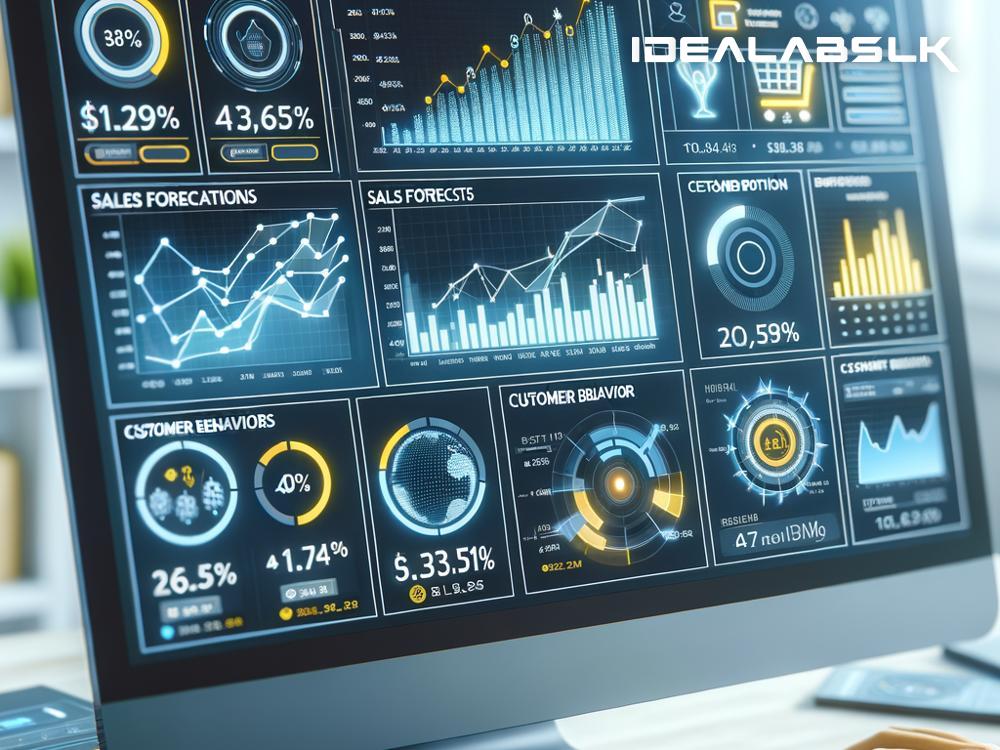Unlocking the Future of Retail with Predictive Analytics in Custom Software
In an era where shopping habits are as diverse as the shoppers themselves, retail businesses are constantly on the lookout for ways to stay ahead of the curve. One powerful tool that has emerged as a game-changer in this fast-paced industry is predictive analytics, particularly when integrated with custom software solutions. This innovative approach is transforming the retail landscape, offering businesses unprecedented insights into future trends, customer behaviors, and much more.
So, what exactly is predictive analytics, and why is it making waves in the retail world?
In simple terms, predictive analytics involves using data, statistical algorithms, and machine learning techniques to identify the likelihood of future outcomes based on historical data. Essentially, it's like having a crystal ball that can give you a sneak peek into future trends and customer preferences, allowing businesses to make informed decisions and tailor their strategies accordingly.
The Power of Custom Software
While predictive analytics is impressive in its own right, its real power shines through when implemented within custom software solutions. Custom software, tailored specifically to a business's unique needs and challenges, can harness the potential of predictive analytics more effectively than off-the-shelf software. This personalized approach enables retail businesses not only to analyze past and present data but also to predict future trends with a high degree of accuracy.
How Predictive Analytics is Revolutionizing Retail
-
Personalized Shopping Experiences: By analyzing customer data and past shopping behaviors, retailers can predict what specific customers are likely to want or need in the future. This insight allows businesses to tailor marketing messages and recommend products in a way that feels personal and relevant to each customer, enhancing their shopping experience and boosting loyalty.
-
Optimized Inventory Management: Predictive analytics can forecast demand for various products with remarkable accuracy. Retailers can use this information to optimize their stock levels, ensuring they have the right products available at the right time—minimizing overstock and understock situations. This not only reduces waste and storage costs but also improves customer satisfaction by ensuring popular items are in stock.
-
Dynamic Pricing Strategies: By predicting future market trends and customer demand, retailers can adjust their pricing strategies proactively. For example, if an item is expected to be in high demand, prices may be adjusted accordingly to maximize profits, while slow-moving items might be discounted to encourage sales.
-
Enhanced Supply Chain Efficiency: Predictive analytics can provide detailed insights into potential supply chain disruptions before they occur, enabling retailers to proactively adjust their logistics and supply chain strategies. This forward planning can lead to smoother operations, reduced costs, and improved customer satisfaction by ensuring timely product availability.
Implementing Predictive Analytics in Retail
The implementation of predictive analytics in retail custom software requires a strategic approach. Retailers must first identify their specific needs and objectives, such as whether they aim to enhance customer experiences, streamline operations, or boost sales. This clarity helps in designing software that is perfectly aligned with their goals.
Next comes the collection and analysis of data, which is the backbone of predictive analytics. Retailers need to ensure they have access to high-quality, relevant data, which can include sales records, customer interactions, inventory levels, and even social media trends.
With a clear objective and the right data in hand, retailers can work with software developers to build a custom solution that leverages predictive analytics. This solution can provide actionable insights, from identifying potential bestsellers to pinpointing the most effective promotional tactics, thereby driving smarter, data-driven decision-making.
The Future of Retail with Predictive Analytics
As retail continues to evolve, the integration of predictive analytics in custom software solutions is set to play a central role in shaping its future. It offers retailers a way to stay ahead in a competitive market by enabling them to predict and adapt to changing customer behaviors and market trends. The potential for enhanced efficiency, increased sales, and an improved customer experience makes the investment in predictive analytics a wise choice for forward-thinking retail businesses.
In conclusion, predictive analytics represents a significant opportunity for the retail industry, offering the ability to forecast the future with a degree of accuracy that was previously unimaginable. When integrated with custom software, it provides a powerful tool that can transform every aspect of the retail landscape. The future of retail lies in anticipating customer needs, and with predictive analytics, businesses are better equipped than ever to meet—and exceed—these expectations.

